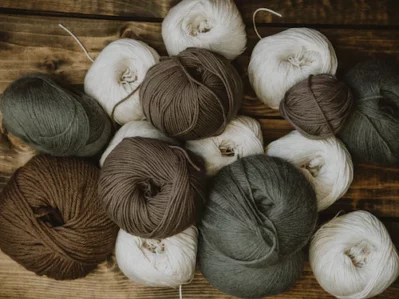Wool has been used for centuries to make clothing and other items. It is a natural fiber that is known for its warmth, durability, and breathability. However, in recent times, there has been a growing concern about the ethical implications of using wool. Vegans, in particular, question whether wool can be considered vegan. This article aims to provide an overview of wool, its production process, ethical concerns, and whether it is vegan.
What is Wool?
Wool is a fiber that is obtained from the fleece of sheep or lamb. It is one of the oldest fibers used by humans and is known for its insulating properties. Wool is composed mainly of keratin, which is a protein that is also found in human hair and nails.
How is Wool Produced?
Wool is obtained from sheep or lamb through a process called shearing. Shearing involves removing the wool from the animal’s body using a sharp blade or electric clippers. The process is usually carried out once a year, and it does not harm the animal. After shearing, the wool is washed, carded, and spun to create yarn.
Ethical Concerns Surrounding Wool Production
While shearing does not harm the animal, some people raise concerns about the welfare of sheep and lambs during the wool production process. Sheep are often raised in large commercial farms, where they are subjected to cruel practices such as mulesing, which involves removing a strip of skin from the sheep’s backside to prevent flystrike. In addition, sheep may be subjected to cruel living conditions, such as overcrowding and lack of access to adequate food and water.
Is Wool Vegan?
The answer to this question depends on one’s interpretation of veganism. Veganism is a lifestyle that seeks to avoid the exploitation of animals for any purpose. While wool is obtained from sheep without causing them any harm, some vegans argue that it is not vegan because sheep are still used as commodities for human use. In contrast, others argue that wool is vegan because it does not involve the killing of animals.
Alternative Vegan Materials
For those who choose to avoid wool, there are alternative vegan materials available. These include cotton, linen, hemp, bamboo, and synthetic fibers such as polyester and nylon. However, these materials may have their own ethical and environmental concerns.
Pros and Cons of Wool
Wool has several advantages that make it a popular material for clothing. It is a natural and renewable resource, it is biodegradable, and it has excellent insulating properties. However, wool also has some disadvantages. It can be expensive, and it may not be suitable for people with sensitive skin. In addition, the production process may raise ethical concerns.
The Ethical Dilemma of Using Wool
Wool is a natural fiber that has been used in clothing for thousands of years. However, the process of obtaining wool has come under scrutiny in recent years, particularly in the vegan community. Many vegans argue that using wool in clothing goes against the principles of animal rights and welfare. The ethical concerns surrounding wool production include the use of pesticides and other chemicals, inhumane treatment of sheep, and the impact of wool production on the environment. As such, the debate over wool’s vegan status is complex and multifaceted.
The Role of Consumer Choice
Consumers have the power to influence the fashion industry by choosing to buy products that align with their values. Conscious consumers can opt for vegan-friendly alternatives to wool, such as cotton, hemp, or synthetic fabrics. Alternatively, they can choose to support ethical wool producers who prioritize animal welfare and sustainability in their practices. By making informed choices, consumers can help to create a more ethical and sustainable fashion industry.
The Pros and Cons of Wool as a Material
Despite the controversies surrounding wool production, it remains a popular material for clothing due to its warmth, durability, and versatility. Wool can be used to make a wide range of garments, from cozy sweaters to stylish suits. Additionally, wool is naturally flame-resistant and has insulating properties, making it an ideal material for outdoor wear. However, wool can be itchy, heavy, and difficult to clean, which may make it less appealing to some consumers.
The Importance of Transparency in Fashion
One of the challenges in the wool and veganism debate is the lack of transparency in the fashion industry. Many clothing brands do not disclose information about their sourcing or production methods, making it difficult for consumers to make informed choices. However, some companies are starting to prioritize transparency and ethical production in response to consumer demand. By supporting these companies, consumers can help to create a more sustainable and ethical fashion industry.
Conclusion
In conclusion, the question of whether wool is vegan is not a simple one. The ethical considerations surrounding wool production are complex and multifaceted, and the debate over wool’s ethical status is ongoing. However, by making informed choices and supporting ethical and sustainable practices, consumers can help to create a more conscious and compassionate fashion industry. Whether you choose to wear wool or opt for vegan alternatives, the key is to be mindful of the impact of your choices and to strive for a more ethical and sustainable future.

